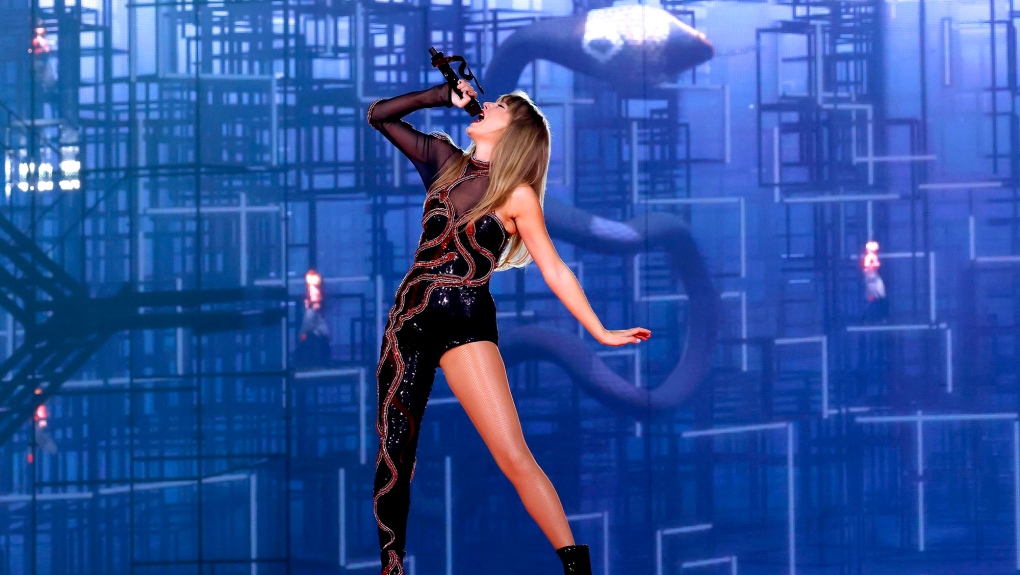Media
Fake animal news abounds on social media as coronavirus upends life – National Geographic

Scattered amid a relentless barrage of news about COVID-19 case surges, quarantine orders, and medical supply shortages on Twitter this week, some happy stories softened the blows: Swans had returned to deserted Venetian canals. Dolphins too. And a group of elephants had sauntered through a village in Yunnan, China, gotten drunk off corn wine, and passed out in a tea garden.
These reports of wildlife triumphs in countries hard-hit by the novel coronavirus got hundreds of thousands of retweets. They went viral on Instagram and Tik Tok. They made news headlines. If there’s a silver lining of the pandemic, people said, this was it—animals were bouncing back, running free in a humanless world.
The swans in the viral posts regularly appear in the canals of Burano, a small island in the greater Venice metropolitan area, where the photos were taken. The “Venetian” dolphins were filmed at a port in Sardinia, in the Mediterranean Sea, hundreds of miles away. No one has figured out where the drunken elephant photos came from, but a Chinese news report debunked the viral posts: While elephants did recently come through a village in Yunnan Province, China, their presence isn’t out of the norm, they aren’t the elephants in the viral photos, and they didn’t get drunk and pass out in a tea field.
The phenomenon highlights how quickly eye-popping, too-good-to-be-true rumors can spread in times of crisis. People are compelled to share posts that make them emotional. When we’re feeling stressed, joyous animal footage can be an irresistible salve. The spread of social phenomena is so powerful, 2016 research shows, that it can follow same models that trace the contagion of epidemics.
When untruths go viral
Kaveri Ganapathy Ahuja’s controversial tweet about the swans that “returned” to Venice canals has hit a million likes.
“Here’s an unexpected side effect of the pandemic,” her tweet reads. “The water flowing through the canals of Venice is clear for the first time in forever. The fish are visible, the swans returned.”
Ahuja, who lives in New Delhi, India, says she saw some photos on social media and decided to put them together in a tweet, unaware that the swans were already regulars in Burano before the coronavirus tore across Italy.
“The tweet was just about sharing something that brought me joy in these gloomy times,” she says. She never expected it to go viral, or to cause any harm. “I wish there was an edit option on Twitter just for moments like this,” Ahuja says.
Nonetheless, she hasn’t deleted the tweet and doesn’t plan to, arguing that it’s still relevant because waters in Venice are clearer than usual—a result of decreased boat activity—and that’s what matters, she says. She’s tweeted about the “unprecedented” number of likes and retweets she’s received on the tweet. “It’s a personal record for me, and I would not like to delete it,” she says.
Swans are regular visitors to the canals of Burano.
Photograph by Danita Delimont, Alamy
The pull of posting
Paulo Ordoveza is a web developer and image verification expert who runs the Twitter account @picpedant, where he debunks fake viral posts—and calls out the fakers. He sees firsthand the “greed for virality” that may drive the impulse to propagate misinformation. It’s “overdosing on the euphoria that comes from seeing those like and retweet numbers rise into the thousands,” he says.
Getting a lot of likes and comments “gives us an immediate social reward,” says Erin Vogel, a social psychologist and postdoctoral fellow at Stanford University. In other words, they make us feel good. Studies have found that posting to social media gives one’s self-esteem a temporary boost.
The need to seek out things that make us feel good may be exacerbated right now, as people try to come to grips with a pandemic, a collapsing economy, and sudden isolation. “In times when we’re all really lonely, it’s tempting to hold onto that feeling, especially if we’re posting something that gives people a lot of hope,” says Vogel. The idea that animals and nature could actually flourish during this crisis “could help give us a sense of meaning and purpose—that we went through this for a reason,” she says.
It was the running theme of many of the viral tweets. “Nature just hit the reset button on us,” read a tweet celebrating the dolphins supposedly swimming in Venetian canals.
“I think people really want to believe in the power of nature to recover,” says Susan Clayton, a professor of psychology and environmental studies at the College of Wooster, in Ohio. “People hope that, no matter what we’ve done, nature is powerful enough to rise above it.” (Read about how this incredible—and real—shark photo went viral.)
About half of Americans say they’ve been exposed to made-up news or information related to coronavirus, according to a new Pew Research Center survey. While a fake happy news story about dolphins in a canal may not be all that problematic, relatively speaking, there can still be harm in spreading false hope in times of crisis.
These fake feel-good stories, Vogel says, can make people even more distrustful at a time when everyone already feels vulnerable. Finding out good news isn’t real “can be even more demoralizing than not hearing it at all.”
Spots of hope on social media are likely to play a key role in keeping spirits up in the weeks and months ahead, as people self-quarantine in their homes and connect with each other through screens. “I’d encourage people to share positive things,” says Vogel. “But it doesn’t have to be anything dramatic. It just has to be true.”
Editor’s note: Want to verify photos online? TinEye and Google offer reverse image searches, which allow you to trace a photo’s digital footprint. Bellingcat, which does open-sourced fact-checking investigations into human rights abuses and in war zones, also has a
thorough guide. If a post seems too good to be true, check social media to see if anyone else has already debunked it. This
detailed thread, from Bellingcat founder Eliot Higgins, pinpoints the swan photo to Burano.And if you’re looking for some true good-news and wonder-inducing stories, check out this story about
the successful reintroduction of fishers in Washington State, this story about a
pink manta ray, or these
amazing photos from inside a honeybee colony.
Media
Taylor Swift's new album apparently leaks, causing social media chaos – CBC News
The hype for Taylor Swift’s new album went into overdrive as it appeared to leak online two days ahead of its Friday release.
Swifties started sharing tracks on X that they claimed were from the singer’s upcoming album, The Tortured Poets Department, saying they came from a Google Drive link containing all 17 songs.
Some fans were upset by the leak and said they would wait until Friday to listen while others started frantically posting fake links on X to bury the “real” tracks.
“Raise your hand if ur an ACTUAL Taylor Swift fan and aren’t listening to leaks,” one user wrote.
Several media outlets reported that X briefly blocked the search term “Taylor Swift leak” on Wednesday.
CBC has reached out to Swift’s publicist for comment.
Swift announced the release, her 11th studio album and the first with all new songs since 2022’s Midnights, at the Grammy Awards ceremony in February.
Fans have been speculating about the lyrical themes that would appear on The Tortured Poets Department, based in part on a physical “library installation” that opened Tuesday in Los Angeles, curated with items that drop hints and references to the inspirations behind the album.
Swift’s 2022 album Midnights, which featured the hit Anti-Hero, also leaked online ahead of its scheduled release date, and went on to win the Grammy for album of the year. Swift’s previous albums 1989, Reputation and Lover also leaked ahead of their official releases.
The singer is in the midst of her billion-dollar-grossing Eras tour, which is moving through the U.S. and is scheduled to conclude in Vancouver in December.
Swift was added to Forbes magazine’s annual new billionaires list earlier this month, with Forbes saying she was the first musician to become a billionaire based solely on her songs and performances.
Media
DJT Stock Jumps. The Truth Social Owner Is Showing Stockholders How to Block Short Sellers. – Barron's
[unable to retrieve full-text content]
DJT Stock Jumps. The Truth Social Owner Is Showing Stockholders How to Block Short Sellers. Barron’s





Source link
Media
Taylor Swift's new album allegedly 'leaked' on social media and it's causing a frenzy – CTV News


Social media can be a divisive place, but even more so when it comes to Taylor Swift.
A Google Drive link allegedly containing 17 tracks that are purportedly from Swift’s eagerly awaited “The Tortured Poets Department” album has been making the rounds on the internet in the past day and people are equal parts mad, sad and happy about it.
CNN has reached out to Swift’s representative for comment.
The actual album is slated to drop at midnight Friday, but the claimed leak is both being hailed and nailed by Swift’s supporters.
One person shared a drawing of a young woman asleep in a sparkly bed with sparkly blankets on X, writing, “How I slept last night knowing I’m going to hear TTPD for the very first time tonight cause I haven’t listened to any leaks.”
Yet another person posted a video of two models walking and wrote, “Me and my bestie on our way to listen to #TSTTPD leaks.”
On Thursday, “Taylor Swift leaks” was a prevented search phrase on X.
The general consensus among those who have decided to be “leak free” appears to be that they are the true Swifties – as her hard core fan base is known – because they don’t believe the singer would have sanctioned such a “leak.”
Swift herself has gone to great lengths to prevent unintended early releases in the past.
“I have a lot of maybe, maybe-not-irrational fears of security invasion, wiretaps, people eavesdropping,” Swift said of her music during an 2014 appearance on” Jimmy Kimmel Live.” She added that her “1989” album only existed on her phone, “covered in cat stickers and the volume buttons don’t work very well because there’s candy stuck in there,” for nearly two years.
“The Tortured Poets Department” is Swift’s 11th album and comes after she became the first woman and only solo artist to win the Grammy for album of the year three times.
-



 Investment13 hours ago
Investment13 hours agoUK Mulls New Curbs on Outbound Investment Over Security Risks – BNN Bloomberg
-



 Tech12 hours ago
Tech12 hours agoSave $700 Off This 4K Projector at Amazon While You Still Can – CNET
-



 Sports11 hours ago
Sports11 hours agoAuston Matthews denied 70th goal as depleted Leafs lose last regular-season game – Toronto Sun
-



 Tech11 hours ago
Tech11 hours ago'Kingdom Come: Deliverance II' Revealed In Epic New Trailer And It Looks Incredible – Forbes
-



 Science13 hours ago
Science13 hours agoJeremy Hansen – The Canadian Encyclopedia
-
Business10 hours ago
BC short-term rental rules take effect May 1 – CityNews Vancouver
-



 Investment10 hours ago
Investment10 hours agoBenjamin Bergen: Why would anyone invest in Canada now? – National Post
-
Art9 hours ago
Collection of First Nations art stolen from Gordon Head home – Times Colonist









